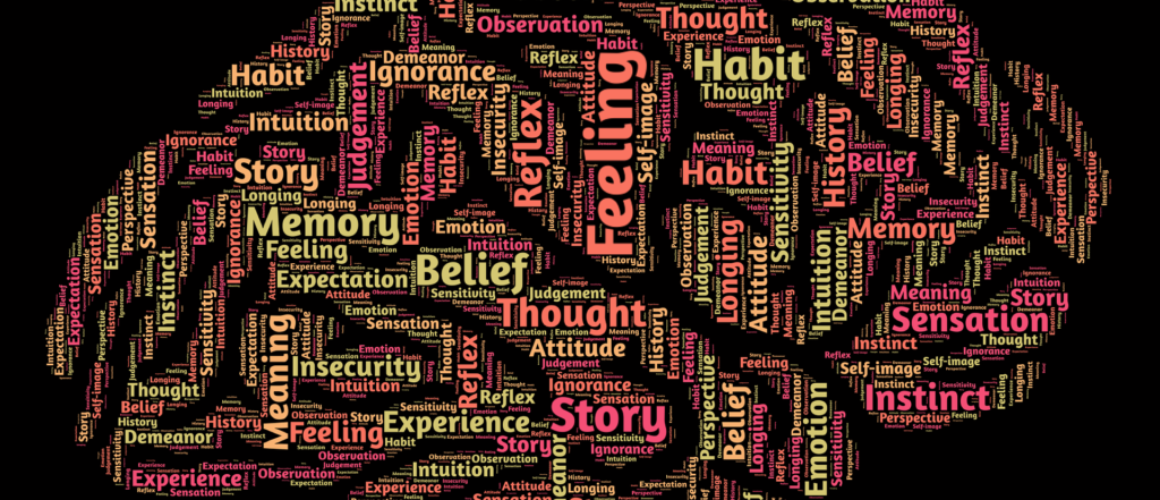Season 1 Summary: Accelerated Evolution

The second chapter in the Supermorning series was a bit of an odd one. It basically set out to explain why we continuously do things we know are wrong and not do things we know are right.
It’s central to the principle of consistency advocated on this blog. Without it, our innate inconsistency is terribly frustrating. With it, this inconsistency becomes understandable and even controllable.
So, let’s start with the problem:
Cavemen stuck in the future
Humans have evolved slowly like any other animal over our 200 millennia history. And for 99.9% of this history, this slow pace of evolution worked fine, simply because our environment changed just as slowly.
But then science and fossil fuels combined to kick off the Anthropocene. We totally changed our environment in the evolutionary blink of an eye, while our emotional makeup remained unchanged.
Hence, we’re all cavemen stuck in the future – a place where our primitive emotions are badly outdated.
Primitive emotions
To simplify things, we can zoom into five main primitive emotions: Craving, Ego, Sloth, Frustration, and Worry. For me, it also works to view these as the Big Five mythical creatures roaming our minds.
Conditioning your mind to instantly recognize the Big Five is very useful in the quest to adapt to life in the Anthropocene. The emotion safari is one way of approaching this conditioning.
Positive emotions
Every villain needs a hero. In this case, the Big Five primitive emotions meet the Great Five positive emotions: Inspiration, Altruism, Flow, Tolerance, and Excitement.
But like any good superhero story, the villain is not all bad, and the hero is not all good. We need to strike a fine emotional balance.
Building environments
A good understanding of the Big Five and the Great Five facilitates the construction of intelligent environments that attract good emotions and suppress bad ones.
Here are some instructions for each pairing:
- Craving and Inspiration. Remove temptation from your life and, instead, learn all you can about things you’re passionate about.
- Ego and Altruism. Regularly expose yourself to challenges to learn that failure is not fatal. Make sure some of those challenges are truly altruistic in nature.
- Sloth and Flow. Rid your environment of bait for your sloth. Instead, consciously shape it so that productivity becomes as natural as possible.
- Frustration and Tolerance. Don’t expose yourself to frustrations you can do nothing about. For everything else, remember that there are only two useful responses: positive action or tolerance.
- Worry and Excitement. Limit exposure to worries beyond your control. Use worries within your power as motivation for doing the thing that will reduce your worry the fastest. Also, make sure you have a long-term purpose you can get excited about.
But even in such well-designed environments, primitive emotions still stick around. They get weakened, but they never leave. Dealing with the Big Five as they come up gets quite a lot easier with some fun visualization.
Acceptance
There are hard limits to how quickly we can change the wiring in our minds. Hence, primitive emotions will continue plaguing us for years to come, even if we do our best to accelerate our evolution.
Accepting the caveman in yourself and in others can save you a huge amount of wasteful inner conflict. If you can direct all this previously wasted energy to more useful purposes, you’re already well ahead of the pack.
Accelerating evolution
Of course, accepting our caveman does not mean that we should stop improving. On the contrary, some of the mental space opened up by reduced inner conflict can be used to further accelerate our evolution.
This can be put into practice by including accelerated evolution into your constitution and keeping a counter of tiny saves where you successfully warded off the Big Five. Another vital application is when something really bad happens and we need to stop a Big Five stampede.
These tools and ideas are not magic bullets, but they will slowly increase your compatibility with our modern world. And this increased compatibility will gradually make happy, healthy, wealthy, productive, and sustainable living the default instead of the exception 🙂
